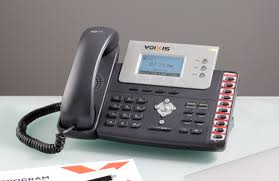
Chances are you’ve heard of the Internet of Things (IoT). The phrase started at MIT. McKinsey & Company defines it as the equipping of all objects and people (probably pets, too) with tiny identifying devices, like sensors, and enabling them to communicate their data. Then these objects could be managed and inventoried by computers.
Your refrigerator could notify your wireless phone that you are running low on milk. It could also check your calendar and see that your in-laws from Tennessee are visiting, so you should buy 2 gallons instead of 1.

In case you think the IoT is a far-off fantasy, read this article from Forbes.com about Google buying Nest, a leading smart-home startup.
The ground work for the Internet of Things has already been laid. It’s all based on two little initials:
IP
Internet Protocol is the “IP” of VoIP. With this technology, voice – which is analog – is converted into packets of data. Those packets are encrypted and then travel over the public Internet, just like your email, Facebook posts, etc.
With the rise of the Internet of Things, VoIP phones will become a very useful node in your network of technologies.
LEARN HOW OUR VoIP PHONE SYSTEMS CAN HELP YOUR BUSINESS
Because they use IP, VoIP phones can be configured to automatically do work for you in the background. For instance:
- Your calendar might be set to notify you via your VoIP phone of an upcoming event.
- Messages from your wireless phone might automatically drop into your email and your VoIP phone.
- Your car can know to notify you at work to stop by for service on your way past a specific mechanic you use. If you press 1 to accept, then your VoIP phone sends your car the address to pre-program into your navigation system. It confirms a calendar event on your mechanic’s calendar, then notifies your wife that you’ll be 30 minutes late for dinner.
IP will be the core protocol of the future. Get your phone system and all your other business processes ready to capitalize on all that IP can do.
